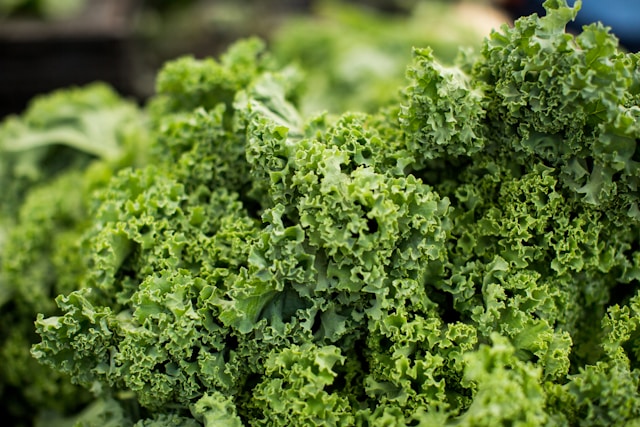Antioxidants – What You Need to Know about these Powerful Substances
December 28, 2016
Most people know about foods they should eat for their gut, heart or to achieve weight-loss goals. But, what should we eat to protect our cells? The right answer is: the foods rich in antioxidants. Multiple studies have shown that people whose diet is low in antioxidant-rich foods, such as fruits and vegetables, are at the greater risk for developing myriad chronic diseases compared to people who eat plenty of these foods. So, should we overload our bodies with antioxidants to fight all those nasty free radicals? Unfortunately, it isn’t that simple. Earth’s Wisdom would like to help you understand how your body works and what you can do to balance oxidants and antioxidants.
Free radicals are highly reactive, unstable substances that are naturally produced when human body converts food into energy or when we exercise. In addition, we are exposed to free radicals from sunlight, air pollution, cigarette smoke and other environmental sources. By causing “oxidative stress”, these harmful substances may trigger cell damage. And, here’s where antioxidants play a significant role; they can delay or prevent cell damage and destruction. These powerful natural or man-made substances came to public attention back in the 90s when scientists found the link between free radical damage and various medical conditions such as cancer, atherosclerosis, vision loss, diabetes, Parkinson’s disease, Alzheimer’s disease etc.
Foods Packed with Antioxidants
If you want to fight “oxidative stress”, your diet should be high in colorful fruits and vegetables, as well as with other foods rich in antioxidants, such as nuts, seeds and whole grains. Vitamin A, beta-carotene, lycopene, lutein, anthocyanin, vitamin C and vitamin E are well-known antioxidants that cannot be produced inside human body, but only obtained from food (or supplements).
Vitamin A – It is associated with healthy eyes. Vitamin A can be found in eggs, milk, butter and liver.
Beta-carotene – A carrot usually steals the spotlight, but that isn’t the only food rich in beta carotene. This powerful antioxidant can also be found in pumpkin, peach, mango, papaya, apricot, cantaloupe, sweet potato, winter squash, broccoli, kale, spinach, collards, beet greens, cabbage etc.
Lycopene – This phytochemical is usually found in red and pink fruits and vegetables such as cooked tomatoes, red cabbage, cooked red peppers, cooked asparagus, watermelon, grapefruit, apricots etc.
Lutein and Zeaxanthin – These carotenoids can be found in eggs, peas, corn, orange, papaya, collards, broccoli, spinach, kale, zucchini etc.
Anthocyanin – The main sources of this antioxidant are berries, such as blueberries, blackberries and grapes, but it can also be found in oranges, figs, mango, as well as in red onion, egg-plants, olives, avocado, purple corn etc.
Vitamin C – Many fruits and vegetables are packed with vitamin C: orange, lemon, papaya, strawberry, kiwi, tomatoes, peppers, kale, Brussels sprouts, broccoli etc.
Vitamin E – This vitamin is usually found in seeds and nuts, but you can also obtain it from green leafy vegetables. Vitamin E rich foods are: sunflower seeds, olive oil, palm oil, canola oil, trout, almonds, hazelnut, peanuts, kale, avocado, spinach, sweet potato etc.
Antioxidant Overload?
What happens if we have too many antioxidants in our body? Antioxidant overload may suppress our body’s own ability to fight oxidative stress itself. Fortunately, it’s highly unlikely to obtain too many antioxidants from a diet. Therefore, it’s always better to stick to natural sources. If, however, you use or plan to take antioxidant supplements, it’s recommended to ask your health provider for advice. Many studies have shown that some antioxidants have a placebo effect and, at worst, they can have a negative impact on certain chronic conditions. High doses of vitamin E might increase risk of one type of stroke and prostate cancer, while smokers should avoid beta-carotene supplements because they may increase the risk of lung cancer. Finally, you should always read the label, because some antioxidant supplements may interact with your medicines.
Conclusion
In conclusion, antioxidants are powerful substances that play a vital role in protecting our bodies from the harmful effects of free radicals. By neutralizing these unstable molecules, antioxidants can help prevent a wide range of health issues, from chronic disease to premature aging. While it is important to consume foods and supplements rich in antioxidants, it is equally important to maintain a healthy lifestyle that includes regular exercise and a balanced diet. By prioritizing our health and taking steps to reduce our exposure to harmful toxins and stressors, we can help our bodies stay healthy and vibrant for years to come. Remember, every small step we take towards a healthier lifestyle can have a significant impact on our overall health and well-being.
It is important to note that while antioxidants have numerous health benefits, they are not a cure-all for all health issues. It is still important to consult with a healthcare professional and maintain regular check-ups to ensure overall health and wellbeing. Additionally, it is important to obtain antioxidants from a variety of sources, including a balanced diet that includes fruits, vegetables, and whole grains. By incorporating antioxidants into our daily routine, we can help protect our bodies from harmful toxins and improve our overall health and well-being.
Leave a comment
Comments will be approved before showing up.
Also in Wisdom News

The Importance of Vitamin K2: Unlocking its Role in Health and Wellness
September 22, 2024

The Importance of Omega-3 Fatty Acids: A Comprehensive Review of Their Effects on the Body
August 02, 2024

The Benefits of Mindfulness Meditation for Mental Health
July 12, 2024
Disclaimer: These statements have not been evaluated by the FDA. These products are not intended to diagnose, treat, cure or prevent any disease.
© 2026 Earth's Wisdom®. All Rights Reserved.




